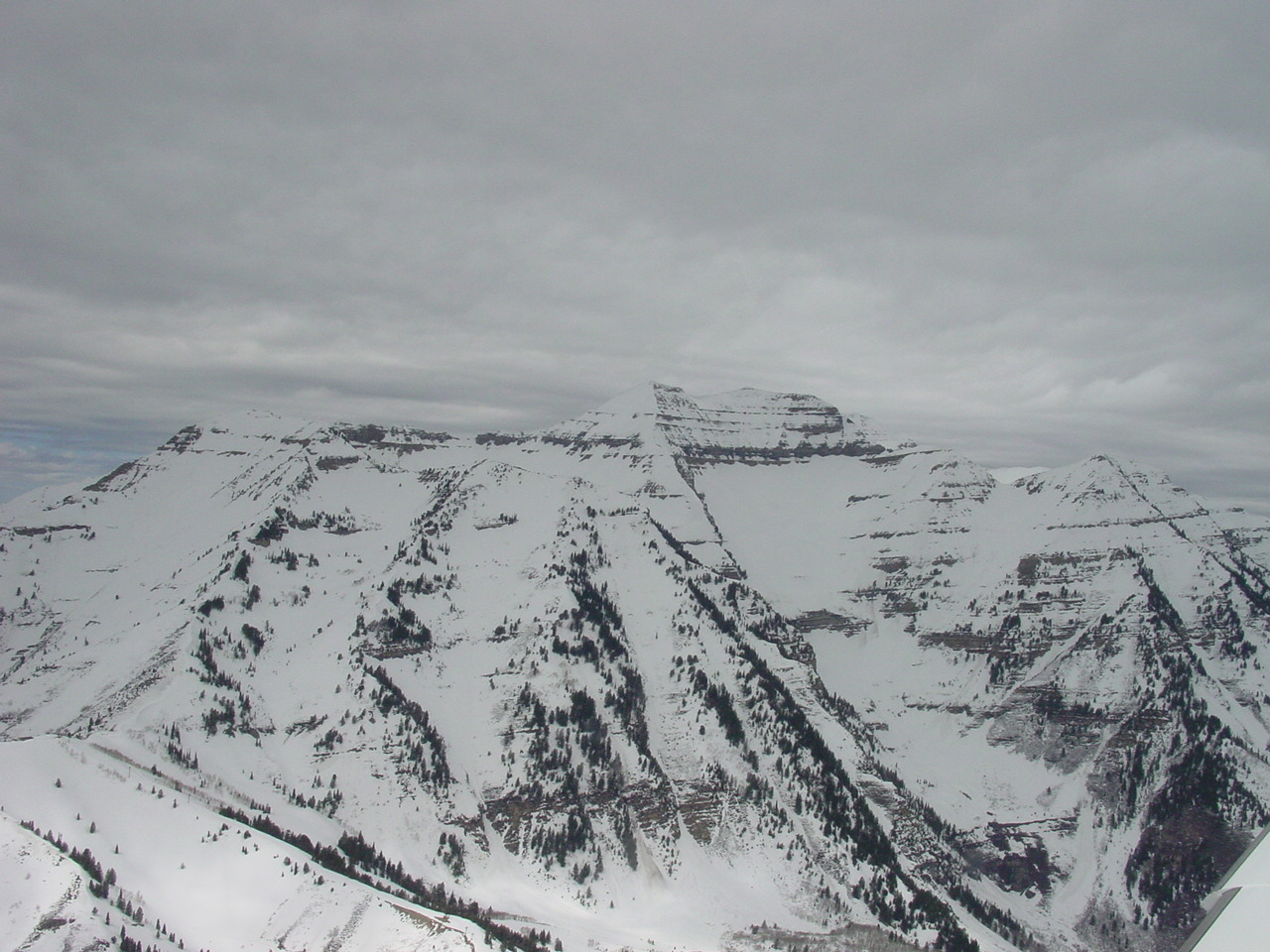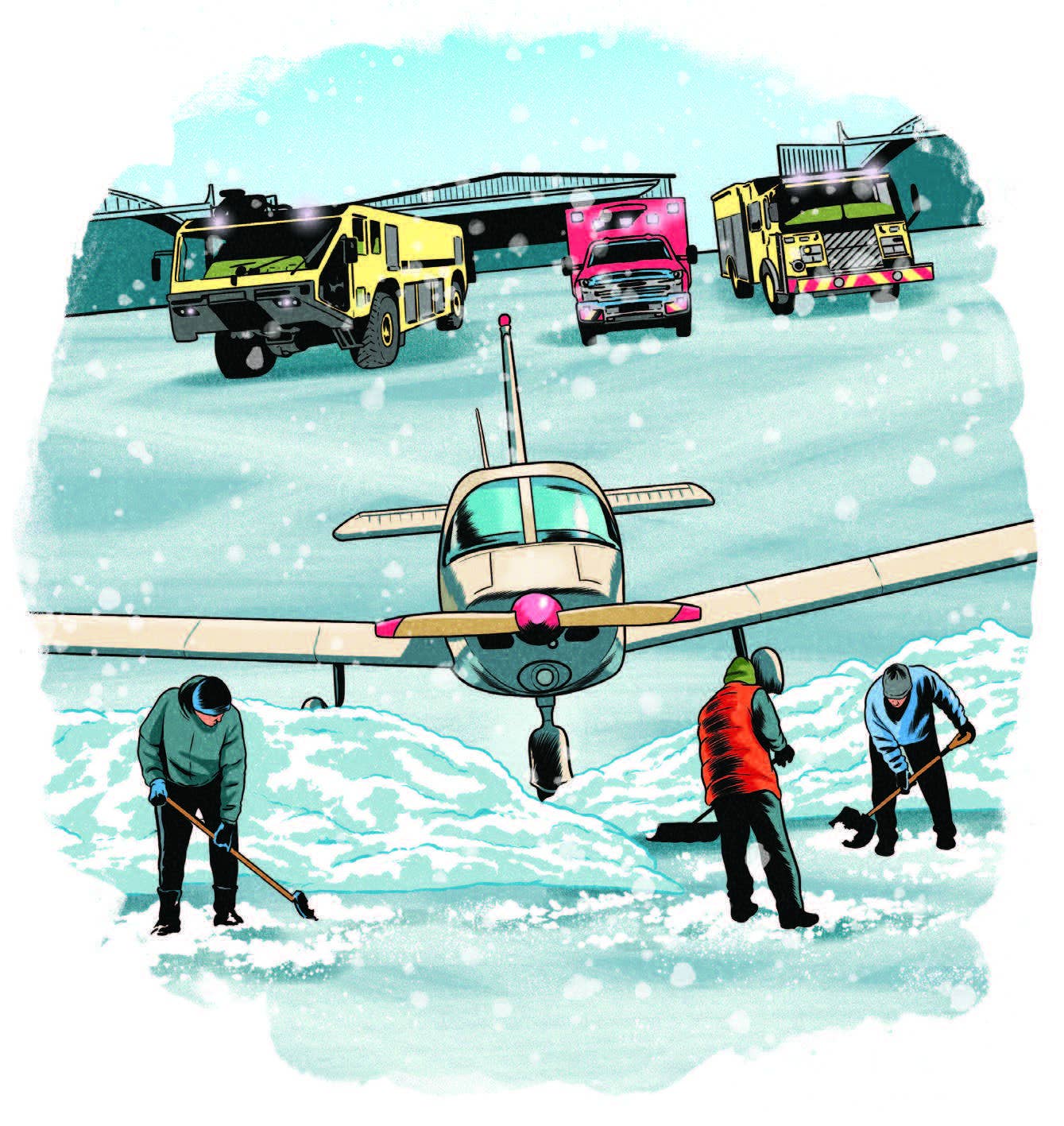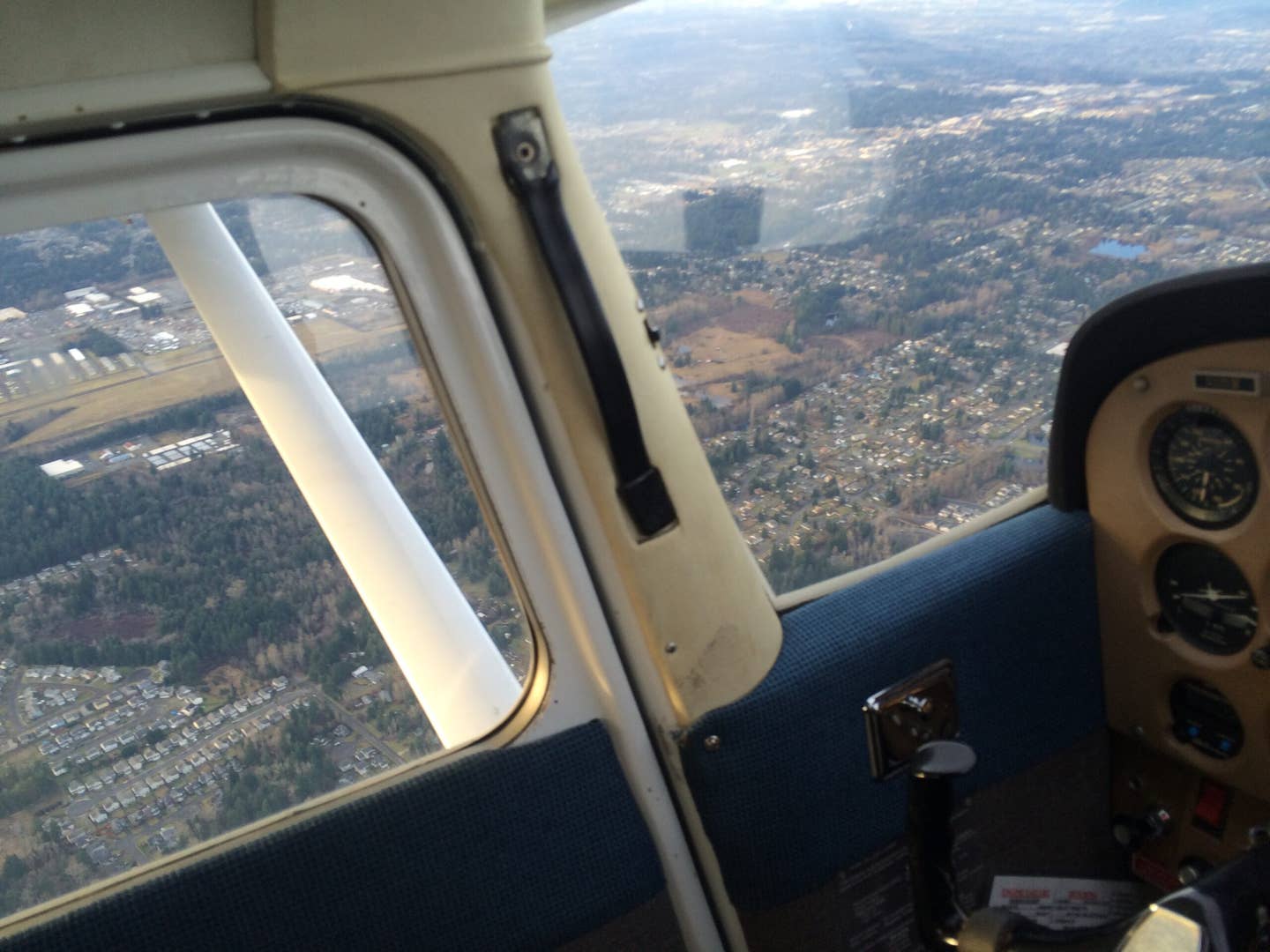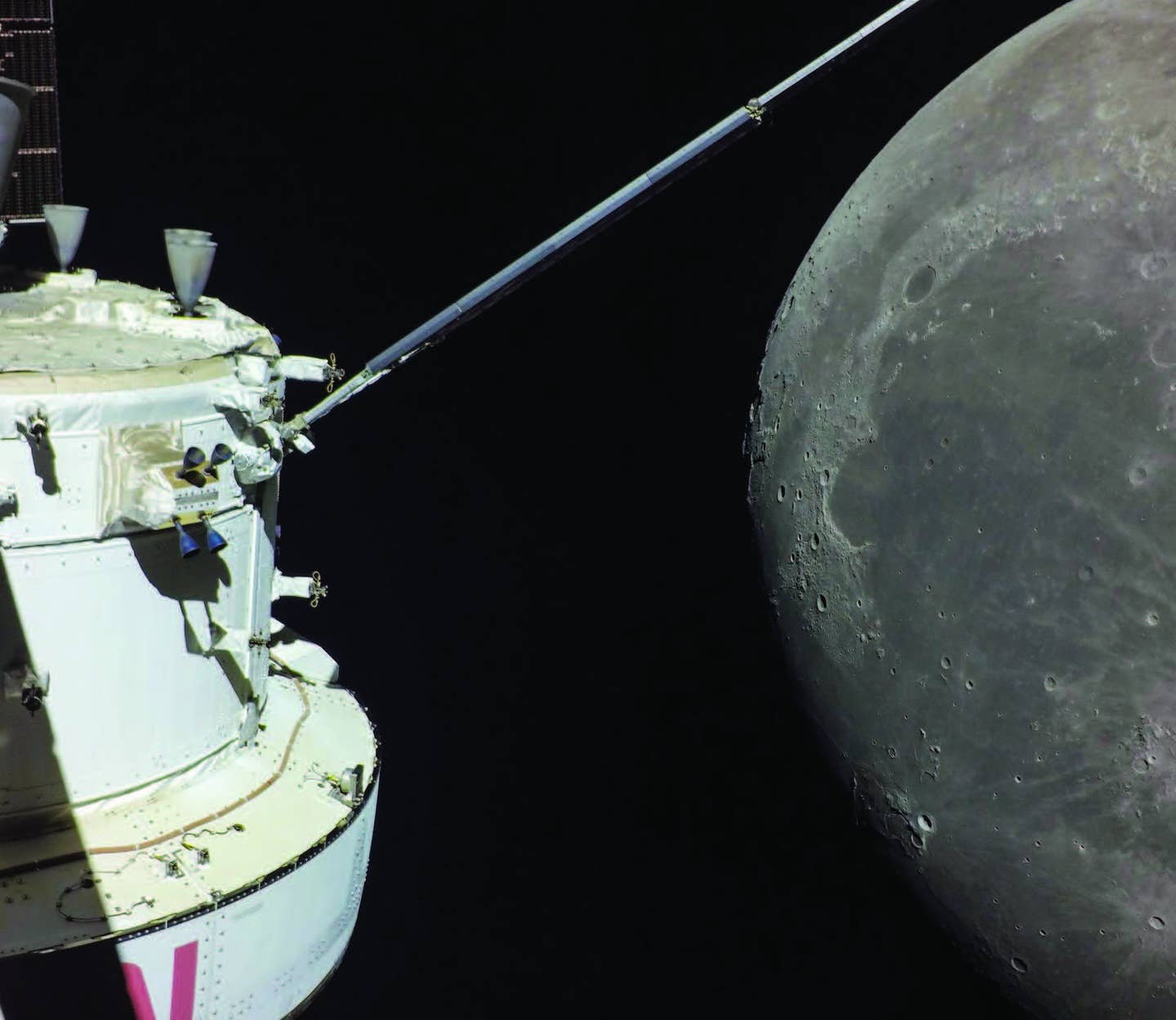Melanie Astles Reflects on Perseverance and Precision
An aerobatic champ races to a new level.
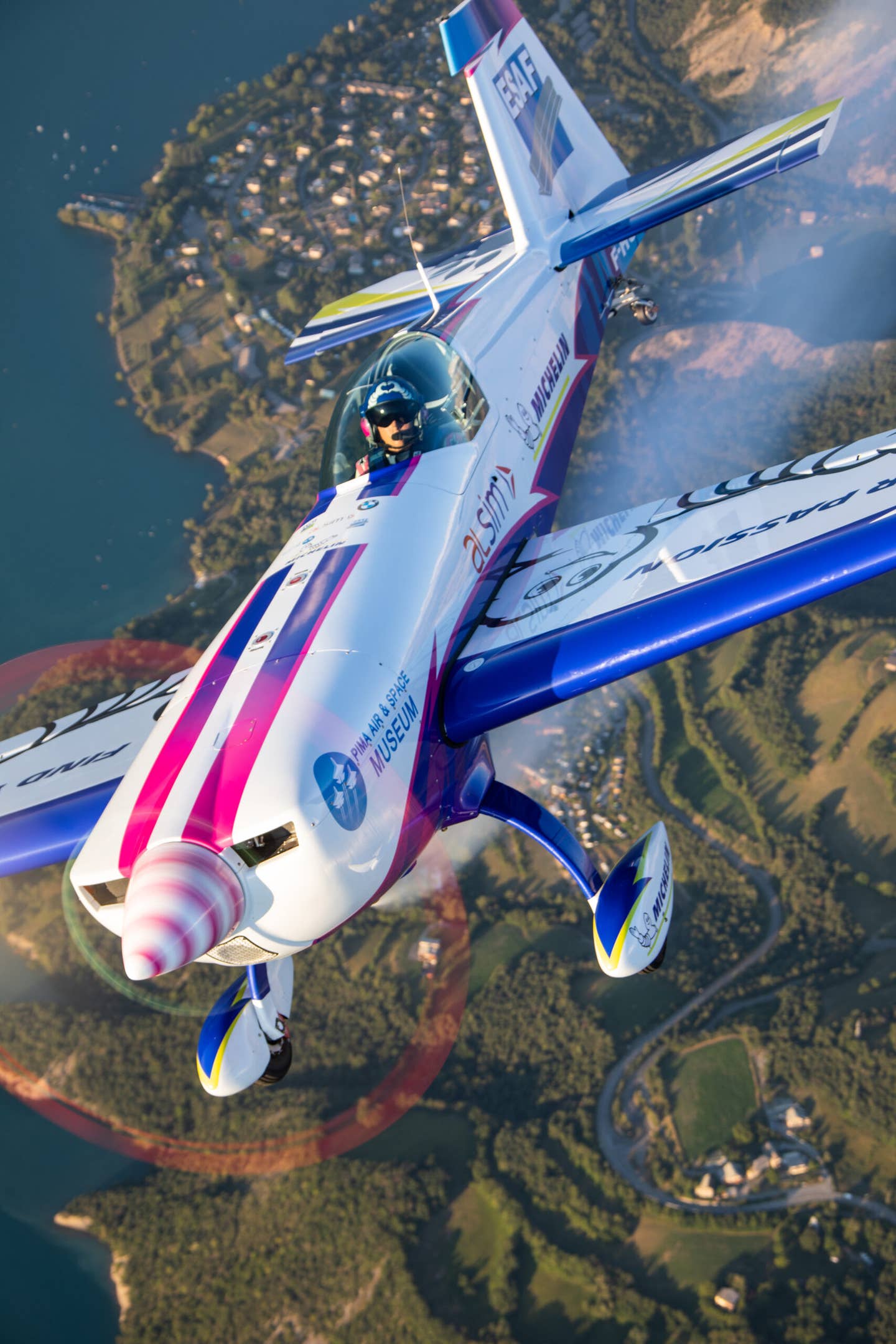
French female aerobatics champion Mélanie Astles. [Credit: Jean-Marie Urlacher]
When you examine the competition aerobatics and air racing careers of six-time French female aerobatics champion Mélanie Astles, they tell a story of intense focus, of setting and attaining goals, and of overcoming any challenges that would impede her success. Hers is a story best described by the word “perseverance,” and since 2007, when she first started training and competing in aerobatics, she has allowed nothing to stand in her way.
An example of her determination and willingness to adapt to challenges was her 2014 appearance at the World Advanced Aerobatic Championships. She was sharing a CAP 332SC with others in her group, and when it came time for her to compete, the airplane broke down and could not be repaired. Faced with elimination, she welcomed the generosity of an Italian competitor who loaned her his CAP 232. Her mantra of “be bold, be daring” carried her to fourth place in that program—and seventh overall, and first woman overall—despite competing in an unfamiliar airplane she had never flown.
Based in the Alpilles region of Provence in southern France, Astles has found success with competition aerobatics, and also as a race pilot on the Red Bull Air Racing Circuit, where in 2017, she won the event portion held at the Indianapolis Motor Speedway.
Astles shared with FLYING how she got to this place, and what she does to maintain her competitive edge.
FLYING Magazine (FM): Your record of achievements indicates you’ve always pushed hard towards your goals and persevered through any challenges you faced. Tell us about your work ethic.
Mélanie Astles (MA): If I had to quote keywords to define my work ethic, those words would be passion, determination, and boldness. I focus on my target, clear away the limiting beliefs, and make a plan to go after it. This way, I can change negative beliefs into positive thinking. I abide by Nelson Mandela’s saying that you either win or you learn. My philosophy is that challenges make you stronger, and failures are incentives to make you progress.
FM: We all know aerobatics competition is extremely strenuous on the human body. How do you condition yourself to handle the G loads of this type of flying?
MA: “A great mind in a healthy body” could be my motto. My physical conditioning is intense, with workouts virtually every day and coaching several times a week. Breathing and abdominal exercises are very important to sustain the G loads, and I recently took up yoga, boxing, and stretching. In aerobatics, mental preparation is just as important as physical preparation.
FM: Does your preparation regime for aerobatics extend to your diet?
MA: I don’t follow a strict diet, because as is everything in life, it should be pleasurable. I eat healthy food regularly but occasionally won’t say no to a pizza, a hamburger, or a drink of champagne.
FM: Walk us through your pre-competition preparations. Do you have methods to eliminate outside life stresses from your mind so you can focus on the demands of the routine?
MA: I guess my best friend is music. Before a competition, I like to be by myself with my headphones listening to my favorite music, oblivious to everything else. At that moment, I am already in the air. In aerobatics, mental preparation is essential. I recently had an insight into hypnosis and learned some basics of autohypnosis, which is sometimes practiced by people, like Bertrand Piccard, who have trained themselves to use autohypnosis for short periods of restorative sleep.
FM: Describe the precision it takes to become a successful Red Bull Air Race (now Air Race World Championship series) pilot. What is the focus like, and what margin of error do you have to maintain to excel?
MA: In aerobatics, we have to perform figures in a limited area, and we are given marks by several judges, very much like ice skating. The difference with air racing is that we compete against the clock, so we are judged on speed. Along the runs, we have to find the best track trajectory, avoid penalties, and preferably not hit a gate.The concentration needs to be maximum because the run is only about 1 minute, so precision is essential, as we fly at nearly 400 km per hour very close to the ground or water. The margin of error is nil.
FM: As a woman, have there ever been times in your career when there were indications that the men around you doubted your skill and determination?
MA: When I was touring with the Red Bull Air Races, I was rather welcomed by the men, everybody was kind and helpful to me. The one problem [I had] was maybe with the media. As the only woman in the sport, I attracted the media, and some of the males resented that, which is a bit understandable. I did not have this feeling of sexism with the other pilots and believe strongly that they saw me as a pilot and not as a woman pilot. And I guess from my results, everybody realized I was not just a pretty face, but was there for fighting and winning!
FM: Throughout your bio and blog posts on your site, you use the word “happiness” frequently. Is flying your happy place?
MA: I always wanted to fly, and when I started flying at 21 years old, the exhilaration was even stronger than I had anticipated. Reaching the sky where I knew I belonged was an intense experience. What other word but “happiness” could I use? My motto of “Smile On” started when I flew my first Red Bull Air Race in Spielberg, Austria, because I just could not believe this was happening to me. I had a permanent smile on my face, even during my runs. When we get on the course, the clock starts when you hear “Smoke On,” which immediately became “Smile On” for me, and that has remained ever since. It is my peaceful cry which I would like to hear throughout the world.
FM: Tell us about the personal relationship you have with F-HMEL, your Extra 330SC.
MA: F-HMEL is indeed very special to me. When I started competing in aerobatics, I shared airplanes. When I wanted my first airplane, the banks refused to lend me the money. But thanks to the help of one of my sponsors, who helped me build a case with the bankers and stood security for me, I was able to buy F-HMEL, and it has been with me through many competitions.
FM: Tell us about being an ambassador to the Pima Air and Space Museum in Arizona. What is the importance you place on inspiring young people to become involved in flying?
MA: I am very proud to represent the Pima Air and Space Museum internationally, because it is one of the most beautiful museums I have ever seen. The Pima staff and I share many common values and want to inspire people to join the aviation world by making it feel accessible. I love promoting the museum, it is just so natural for me because the history found there highlights the values I defend.
Quick 6
Who’s the one person living or dead you would most like to fly with? Someone who is dreaming of flying but can’t.
If you could fly any airplane or helicopter, what would that be? The F-15 Eagle, because it’s my favorite fighter.
What is one airport you’ve always wanted to fly into? Oshkosh (KOSH).
What do you believe has been aviation’s biggest break-through event or innovation? Breaking the sound barrier.
What is one important life lesson you’ve learned from being an aerobatic competitor? It is not so much what I do in competition, it is who Ibecome through competing.
When not flying, I’d rather be… Learning new things

Sign-up for newsletters & special offers!
Get the latest FLYING stories & special offers delivered directly to your inbox

